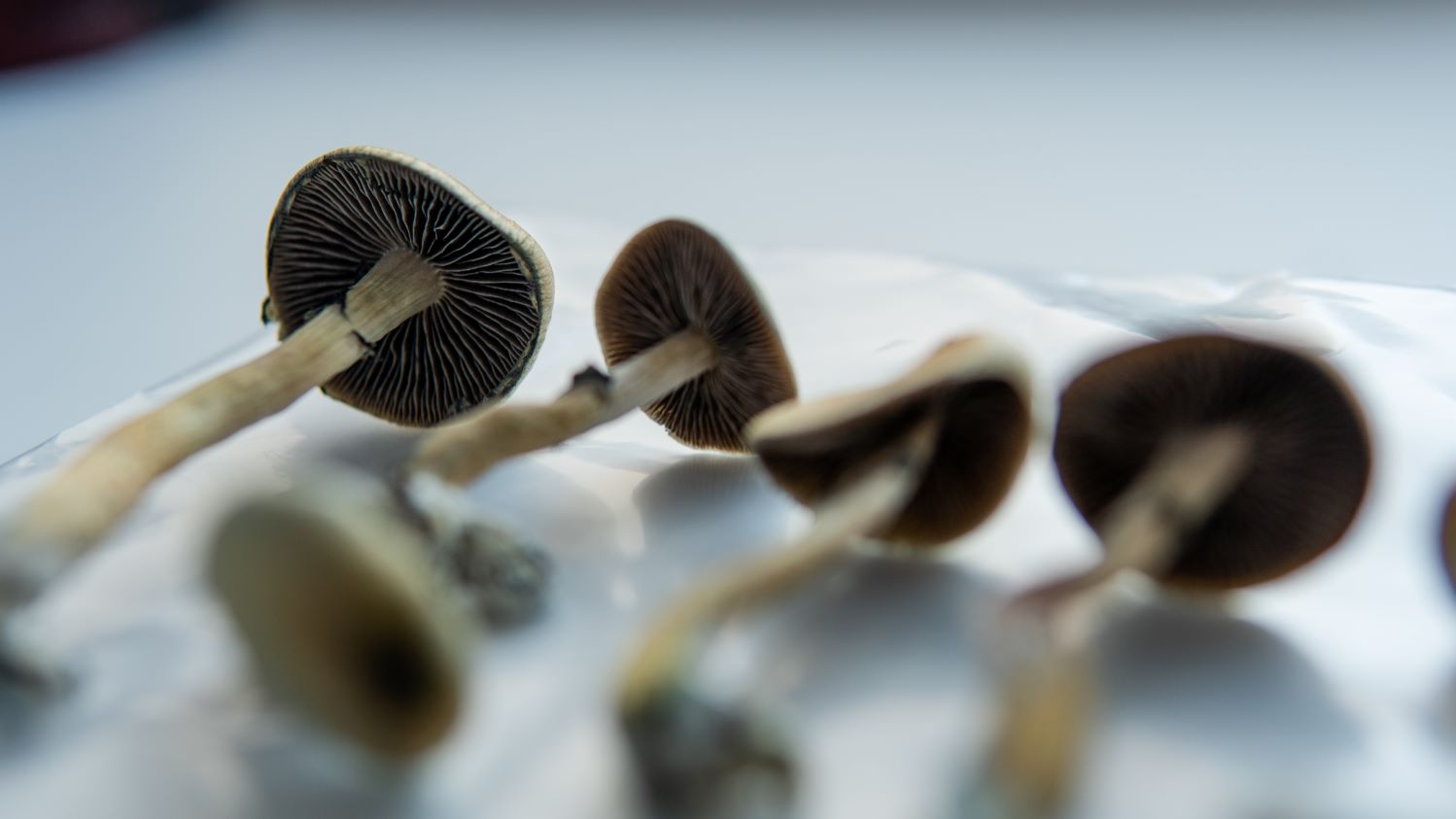It’s no secret that psychedelics are on the comeback trail, with a record number of trials and total investment in the hundreds of millions of dollars in 2021 alone. This interest – from the public, investors, and researchers alike – has made 2021 the biggest year for psychedelics research to date – and 2022 is set to be even bigger…
The ongoing expansion of the psychedelics sector has led to the development of more products and an explosion of clinical studies and trials. The evidence collected through these trials is continuously adding to the evidence base first collected in the mid-20th century.
The Mid-Century Psychedelics Boom
Early psychedelics studies led to some key discoveries, such as the potential for the substances to be used as a tool for psychotherapy – including for tackling addiction and depression. However, the introduction of the Controlled Substances Act in the US in 1970 stopped the vast majority of this important research in its tracks.
Soon after the US legislation, the introduction of the Convention on Psychotropic Substances, 1971 controversially halted psychedelics research, globally. Over the following years, the flood of psychedelics research was reduced to a trickle… until recently.
This so-called “Psychedelics Renaissance” represents the largest flux of research in the area since the 1950s and 60s. In 2021 alone, dozens of trials and hundreds more studies were completed to expand our knowledge of these substances.
Psychedelics Studies in 2021
A record number of studies were carried out to assess the therapeutic potential of psychedelic substances – including ketamine, DMT, and psilocybin – in a number of clinical settings. Many of these studies and trials were carried out in the US, with over 1,000 clinical psychedelic trials currently sanctioned by the FDA there. However, the rest of the world is beginning to catch up, with more psychedelic studies being carried out globally, including in the UK.
DMT
Several studies and trials focused on DMT’s potential as a treatment for depression. In 2021, a UK trial was approved to assess this potential by administering the psychedelic to patients with depression, alongside professional psychotherapy. Researchers believe that the substance may work by loosening and breaking up existing thought patterns and pathways which can then be rebuilt in a more logical pattern with therapy.
Ketamine
Other studies have assessed the potential of ketamine – a psychedelic drug that has previously been used as an anaesthetic and sedative – as a treatment for addiction, PTSD, and depression. Previous studies have shown that ketamine can be useful as an emergency treatment for depression and suicidal feelings.
One study, carried out in 2021 revealed that ketamine, when delivered alongside psychotherapy was able to help alcoholics abstain from drinking for longer. UK clinic Awakn also announced last year that it would be carrying out a trial into the use of ketamine as a treatment for gambling addiction.
However, the vast majority of studies over the last year have focused on MDMA and psilocybin – the psychoactive compound that is found in a number of mushroom and fungus species – widely referred to as ‘magic mushrooms’.
MDMA
MDMA was prohibited in the US in 1985 through an emergency ruling, despite promising findings suggesting it could be useful for the treatment of PTSD. A number of studies have supported this theory, with one of the most recent – a phase III double-blind, placebo-controlled trial, published in 2021 – demonstrating that MDMA therapy “results in a significant and robust attenuation of PTSD symptoms and functional impairment”.
Psilocybin
Psilocybin is perhaps one of the most popular and widely used psychedelic drugs. Like many psychedelics, ‘magic mushrooms’ are commonly used recreationally, but the key to the effects of these mushrooms may also have some promising therapeutic properties. For example, a phase IIb clinical study found that a psilocybin-based treatment (COMP360 psilocybin) was able to produce “a highly statistically significant and clinically relevant reduction in depressive symptom severity after three weeks, with a rapid and durable treatment response.”

Researchers are also increasingly showing an interest in the physiological effects of psilocybin. Heroic Hearts Project UK and the USA have invited Imperial College to attend upcoming psychedelic therapy retreats to conduct an observational study about the effects of psilocybin on veterans with a history of traumatic brain injury (TBI).
While we have touched upon a few studies here, we really have only scratched the surface of the important research being carried out on the potential of psychedelics. There are hundreds more studies, trials, and reviews that are continuing to open our eyes to how useful these substances could be in the future.
In addition to an increase in trials, interest in psychedelics has expanded to other aspects related to these substances, including product development and legislation.
Funding and Product Development
Funding for the psychedelics sector is also seeing a dramatic increase, surpassing $730 million across 61 deals in 2021 alone (compared with $359 million in 2020). 2021 also saw the first billion-dollar IPOs and/or valuations of psychedelics companies (ATAI Life Sciences; GH Research; MindMed).
Reports show that product R&D is the fastest growing sector of the psychedelics industry as demand continues to climb. In addition to Compass Pathways’ development of their psilocybin-derived product COMP360, Delix Therapeutics raised $70 million for the development of LSD-like compounds that could potentially help to ‘re-wire the brain’ and serve as a useful treatment for mental health conditions.
California-based Bexson Biomedical also announced last year that it is developing a subcutaneous medical device that can be worn. The device will be designed to deliver a pre-determined dose of psychedelic substances.
Legislation
The interest of funders is also reflected in the legislative sector, with more jurisdictions considering the decriminalisation and even the legalisation of psychedelics such as ‘magic mushrooms’. For example, at the end of 2020, voters in Oregon voted in favour of the decriminalisation of all drugs – including psychedelics.
Throughout 2021, more jurisdictions – both within the US and further afield – announced moves to follow suit with Oregon. In the UK, prime minister Boris Johnson revealed that he had approved the legalisation of psilocybin for medical purposes. Psilocybin has also been decriminalised in a number of US cities, including Oakland, Arcata, and Santa Cruz, CA; Denver, CO; Port Townsend, WA; and Washinton D.C.
Already in 2022, the Canadian government has announced that it will be legalising psychedelics for medical uses across the country. In addition, the Australian government has also announced that it will be handing out a reported $15 million to fund psychedelic research for a number of mental health conditions.
Looking Forward to 2022
Over the last few decades, a significant proportion of students have shown a growing interest in alternative treatments for a variety of conditions and illnesses – including the potential of medical cannabis and now increasingly, psychedelics. This is set to come to a head over the next few years as funding increases and restrictions loosen.
While many ‘traditional’ pharmaceutical treatments may help to alleviate symptoms of conditions such as anxiety, depression, PTSD, and addiction, current research shows that psychedelics can be useful at addressing their root causes. As such, these substances could play an essential role in the modern world, as an ever-rising proportion of the population report experiencing symptoms of anxiety and depression.
The continued pace of the psychedelics law reform movement and ever-growing investment in the sector is expected to make 2022 the biggest year for the industry to date.
For more on the growing psychedelics industry – keep an eye out for our upcoming podcast series – Not That High: The Psychedelics Series!

